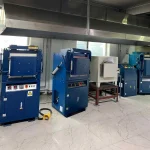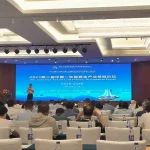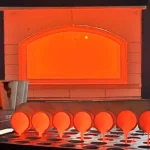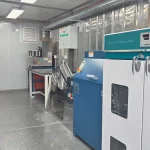Laboratory Fume Hood creates a safe and clean laboratory environment
1. Ensure the number of air changes in the fire assay laboratory
Under normal circumstances, we believe that the laboratory should guarantee 6-12 air changes per hour. If an exhaust system such as fume hood exhaust is used as the primary control of the fire assay laboratory airflow control, it is usually required to ensure that the number of air changes is 4-12 times/hour. However, when the laboratory has large exhaust requirements (more fume hoods) or high heat load in the laboratory (if there are more analytical equipment,fusion furnaces, cupellation furnaces), more air changes may be required.
2. Prevent cross-contamination of airflow
Ensure that the laboratory airflow is constantly updated to prevent the concentration of toxic gases in the laboratory from increasing during working days. The air in all chemical laboratories should be discharged outside and not recycled. Therefore, it is necessary to ensure that the internal balance of the laboratory is negative pressure, and the laboratory will not form cross-contamination of the surrounding area.
3. How to be good for health
The laboratory should also be ventilated frequently when the fume hood is not used, which is beneficial to the health of the test personnel. When the fume hood is in use, make up air for 10 minutes every 2 hours (that is, open the window for ventilation). If the use time exceeds 5 hours, open the windows to avoid negative pressure in the room.
It is forbidden to do experiments in the fume hood when the fume hood is not turned on;
It is forbidden to put your head into the fume hood to operate or view during the experiment;
It is forbidden to do experiments in the fume hood that mix organic substances and high-chlorine compounds that are prohibited by the state from being discharged;
It is forbidden to place the tested substance in a fume hood for experiments without safety. Once the chemical substance is sprayed out, the power supply should be cut off immediately;
The operating area of the fume hood should be kept unobstructed. Avoid stacking objects around the fume hood. When the operator is not using the fume hood, avoid storing too much test equipment or chemical substances on the fume hood table, and it is forbidden to stack it for a long time.
4. Control wind speed
It is generally stipulated that the general non-toxic pollutants are 0.25-0.38m/s, the toxic or dangerous harmful substances are 0.4-0.5 m/s, the highly toxic or have a small amount of radioactivity are 0.5-0.6m/s, and the gas is 0.5m/s, granular material is 1m/s. In order to ensure such a wind speed, the exhaust fan should have the necessary static pressure, that is, the frictional resistance when the air passes through the ventilation duct. When determining the wind speed, you must also pay attention to the noise problem. When the air flows through the pipe, the limit is 7-10m. If it exceeds 10m, the noise will be generated.









